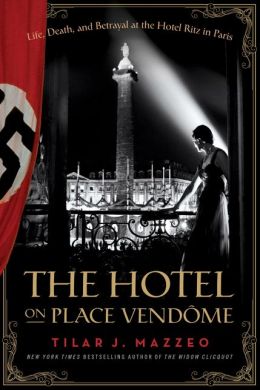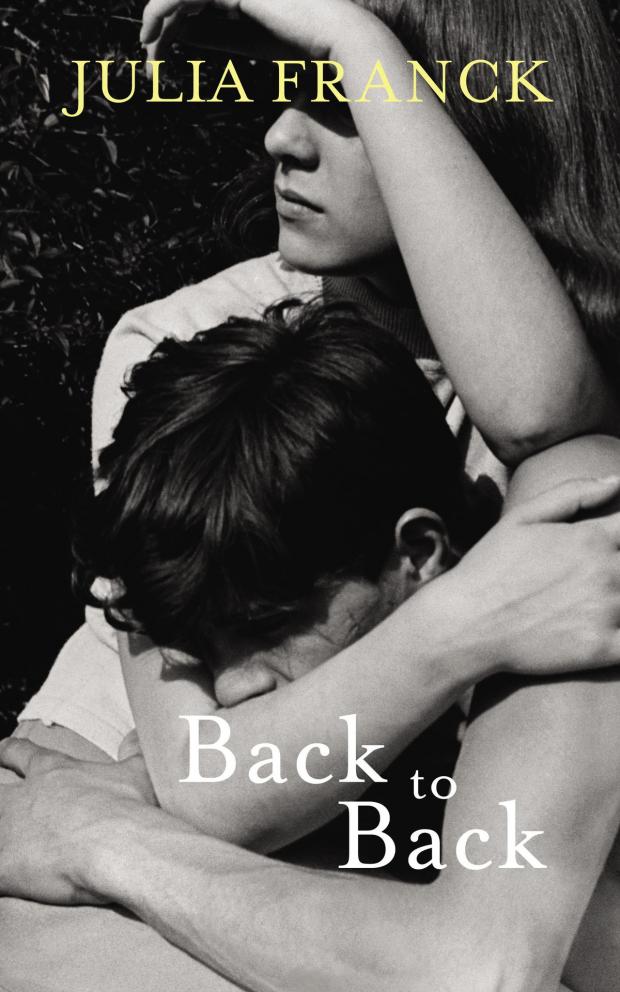The fact that I've only got the job half done with my Fall Preview books in no way deters me from gazing longingly at publishers' catalogs and making notes of books I want to read from their winter lists. Here's a selection of titles that have me all a-twitter with anticipation.
 We know the French are different. Remember Muriel Barbery's The Elegance of the Hedgehog from 2008? A smash hit in France, it was a puzzle to a lot of American readers, including most members of my book club. But I liked it, so I'm optimistic about the latest quirky French best-seller, Katherine Pancol's The Yellow Eyes of Crocodiles (translated from the French by William Rodarmor and Helen Dickinson) (Penguin Books, December 31, 2013).
We know the French are different. Remember Muriel Barbery's The Elegance of the Hedgehog from 2008? A smash hit in France, it was a puzzle to a lot of American readers, including most members of my book club. But I liked it, so I'm optimistic about the latest quirky French best-seller, Katherine Pancol's The Yellow Eyes of Crocodiles (translated from the French by William Rodarmor and Helen Dickinson) (Penguin Books, December 31, 2013).Joséphine Cortès is a dowdy, middle-aged Frenchwoman who works for a pittance as a medieval history scholar. (Considering we're talking France, she's probably merely ordinary looking and, if this is made into a movie, she'll be played by somebody like Julia Ormond, but she'll uglify herself by going without eyeliner. But I digress.) When Joséphine's husband runs off to Kenya with his mistress, Madame Cortès is in a pickle (or should I say a cornichon?) because she doesn't make enough money to support herself and her two daughters.
Enter Joséphine's wealthy social-climbing sister, Iris. Iris just happens to have wangled herself a contract to write a medieval romance novel––despite the fact that Iris really doesn't know a thing about the subject. Iris makes a deal with Josephine: Joséphine will secretly ghostwrite the novel in exchange for the money the book makes. What's not to like about that? Iris will garner the notoriety she craves and Joséphine will pocket the money she so desperately needs. But when the novel becomes an unexpected runaway success, complications abound.
Some publicists know exactly how to reel me in. When I hear that Michele Zackheim's The Last Train to Paris (Europa Editions, January 7, 2014) should appeal to fans of Erik Larson's In the Garden of Beasts, I perk up like a dog smelling dinner.
Here's the setup. Rosie Manon, a transplant from Nevada, is a newspaperwoman in New York City in 1935, when she's awarded the prize of a lifetime: an assignment as foreign correspondent, based in Paris. Things are tough for her, as the only woman in the office and, for a world not ready for female journalists, her byline is given as R. B. Manon.
Misogyny seems a relatively minor problem when Rosie, whose mother is Jewish, is sent to Berlin, at a time when the Nazi Party was strengthening its grip and implementing its violent anti-Semitic measures. A secret affair, a murder, and an increasingly perilous situation in Germany send Rosie on a desperate flight back to Paris.
 Before I leave Paris, I definitely want to read Tilar J. Mazzeo's The Hotel on Place Vendôme: Life, Death, and Betrayal at the Hotel Ritz in Paris (Harper, March 11, 2014). The iconic Hotel Ritz was where everybody who was anybody went, either to stay or to hobnob at its glittering bar.
Before I leave Paris, I definitely want to read Tilar J. Mazzeo's The Hotel on Place Vendôme: Life, Death, and Betrayal at the Hotel Ritz in Paris (Harper, March 11, 2014). The iconic Hotel Ritz was where everybody who was anybody went, either to stay or to hobnob at its glittering bar.
When the German conquerors overran France in 1940, the Ritz became home to many German high-ranking officers. That was convenient for designer Coco Chanel, who lived at the Ritz and carried on an affair with Hans Gunther von Dincklage. But it was also handy for many plotting against the German occupiers, and even for some of the Germans involved in the plot to assassinate Hitler.
There is an old saying: "History is gossip well told." I'm hoping The Hotel on Place Vendôme will illustrate that quip.
 I have a sense of mixed fear and anticipation about Julia Franck's Back to Back (translated from the German by Anthea Bell) (Grove Press, December 3, 2013). On the one hand, I'm fascinated by stories of life under East Germany's totalitarian surveillance state. On the other, this one looks like calling it bleak is a vast understatement.
I have a sense of mixed fear and anticipation about Julia Franck's Back to Back (translated from the German by Anthea Bell) (Grove Press, December 3, 2013). On the one hand, I'm fascinated by stories of life under East Germany's totalitarian surveillance state. On the other, this one looks like calling it bleak is a vast understatement.
Sculptor Käthe is a Jewish survivor of the Nazi era who has put all of her faith in the East German propaganda about the perfect workers' paradise, against all evidence to the contrary. While she is so blind to reality that she allows her daughter to be abused by their boarder, an agent of the Stasi spy agency, and insists that her son study geology and take a physically and mentally destructive quarry job despite his wish to be a writer, she lives in relative comfort by prostituting her art to the state. Only a catastrophe will force Käthe to face reality.
That Julia Franck apparently based this story on her own grandmother is chilling.
 Once I finish that book, I'm going to need a serious palate cleanser. For something completely different, I'm thinking a good choice might be Simon Brett's The Strangling on the Stage, the 15th in his Fethering series. In this series, Carole Seddon, a straight-laced divorcée living in retirement in an English coastal town, teams up with her free-spirit neighbor, Jude, whenever (which is every year in this series) somebody in the Fethering area gets bumped off.
Once I finish that book, I'm going to need a serious palate cleanser. For something completely different, I'm thinking a good choice might be Simon Brett's The Strangling on the Stage, the 15th in his Fethering series. In this series, Carole Seddon, a straight-laced divorcée living in retirement in an English coastal town, teams up with her free-spirit neighbor, Jude, whenever (which is every year in this series) somebody in the Fethering area gets bumped off.There is a lot of wine drinking and laughing at human nature in this series, which is unabashedly lightweight and formulaic, but has a real affection for its characters and sympathy for their weaknesses and vulnerabilities.
As long as we're on the subject of British mysteries, I should let you all know that one of my recent favorites, Christopher Fowler's The Invisible Code will finally, finally be published in the US by Bantam on December 17, 2013. For some odd reason, the audiobook was available here well over a year ago, and I enjoyed it very much. You can read my full review here.
 I have other British mysteries on my winter wish list, which will come as no surprise to those of you who know me. She's Leaving Home by William Shaw (Mulholland, February 11, 2014) has an irresistible hook for the mystery-loving Baby Boomer. In 1968, a young woman is found strangled in St. John's Wood, close to the Abbey Road recording studios used by the Beatles. Is she one of the fans who often hang around, hoping for a glimpse of the Fab Four?
I have other British mysteries on my winter wish list, which will come as no surprise to those of you who know me. She's Leaving Home by William Shaw (Mulholland, February 11, 2014) has an irresistible hook for the mystery-loving Baby Boomer. In 1968, a young woman is found strangled in St. John's Wood, close to the Abbey Road recording studios used by the Beatles. Is she one of the fans who often hang around, hoping for a glimpse of the Fab Four?Solving the case might just rescue the career of Detective Sergeant Cathal Breen, who is in bad odor with his colleagues. At a time when women were allowed only to be auxiliaries in the police force, Breen is teamed with WPC Helen Tozer.
First-timer William Shaw promises to bring the swinging 60s to life, with all its color and liberation from the dreary postwar era, but also the rampant, casual sexism and racism within the police force.
What do you think about the revamped John Rebus series, with him uneasily back from retirement and clashing regularly with Malcolm Fox of the force's Complaints? I can't say I like it as much as the original, but I did enjoy last year's Standing in Another Man's Grave (see the review by Della Streetwise here) and I'm sure not going to pass up the next one, Saints of the Shadow Bible (Little, Brown and Co., January 14, 2014).
Rebus is back on the force, only now––in an amusing turn––he's the DS and Siobhan Clarke is his DI. They're working together on a suspicious car crash case, and even Malcolm Fox is helping out. Then Fox's attention is drawn away by being assigned to investigate a 30-year-old case in which Rebus (then a DC) and his team are suspected of having allowed a murderer to escape justice because he was their regular informant.
As always, author Ian Rankin makes his time and place an important part of the story. In this case, it's an upcoming referendum on Scottish independence.
 In my personal pantheon of contemporary British police procedural writers, there are several other names that accompany Rankin's, and one of them is Peter Robinson's. I can hardly believe it, but his Alan Banks series, set in Yorkshire, hit the 25-year mark last year, and Children of the Revolution (William Morrow, March 25, 2014) will be the 21st book.
In my personal pantheon of contemporary British police procedural writers, there are several other names that accompany Rankin's, and one of them is Peter Robinson's. I can hardly believe it, but his Alan Banks series, set in Yorkshire, hit the 25-year mark last year, and Children of the Revolution (William Morrow, March 25, 2014) will be the 21st book.When lecturer Gavin Miller was dismissed from his academic job for sexual misconduct, he retreated from the world, jobless and living like a hermit by the railroad tracks. When he's found dead by the tracks four years later, having reached the ground the fast way from the overpass, DCI Alan Banks investigates. The first mystery is how Miller came to have £5,000 on him.
Banks begins to suspect that the reasons for Miller's death may lie in his distant past, when he was involved in bitter political battles at his university. Soon Banks has another mystery to solve; i.e., why is he being ordered to back off the case?
How about one last one set in the UK? This one promises to hit my sweet spot: it's a World War II alternative history. C. J. Sansom, best known for his Matthew Shardlake series, has turned his focus from Tudor England to imagining what might have happened if Prime Minister Lloyd George, a Hitler admirer, made the UK essentially a German lackey.
In Dominion (Mulholland Books, January 28, 2014), Sansom gives us the chilling tale of a British police state, much like Vichy France. Press and broadcasts are censored by the far-right government, Jews are under attack and all resistance is crushed by the state's violent militia. But the government is increasingly harassed by a loose coalition of opponents, led by Winston Churchill, and including scientists, civil servants and others. When the Gestapo sends its thugs to Britain, the stakes are raised for the members of the resistance and the nation as a whole.
 Moving a lot closer to home, especially for a Mainer like me, is Peter Swanson's The Girl with a Clock For a Heart (William Morrow, February 4, 2014). We begin in a bar in Boston (ah, if only), where protagonist George Foss encounters his ex-girlfriend from 20 years ago. Liana Dector ripped out George's heart and disappeared, but now she says she needs his help. Boy, does she ever.
Moving a lot closer to home, especially for a Mainer like me, is Peter Swanson's The Girl with a Clock For a Heart (William Morrow, February 4, 2014). We begin in a bar in Boston (ah, if only), where protagonist George Foss encounters his ex-girlfriend from 20 years ago. Liana Dector ripped out George's heart and disappeared, but now she says she needs his help. Boy, does she ever.Liana is being pursued by bad guys who say she stole their money, and she needs to be protected from them. But is she a damsel in distress or is she just as dangerous and cold-blooded as her pursuers?
Billed as stylish noir, the book has already been optioned by Hollywood.
Last on my list, but much, much higher up in my reading plans is Adam Sternbergh's Shovel Ready (Crown, January 14, 2014). Our anti-hero, known as Spademan, used to be a garbage collector in Manhattan––but that was before the dirty bomb changed everything. Now he's a different kind of cleaner; a gun for hire.
Like a private dick from the 1930s, Spademan is a man of few words, each one with a sharp edge. If you have a job that needs to be done, Spademan says: "I don't want to know your reasons. . . . I don't care. I'm not your Father Confessor. Think of me more like a bullet. Just point."
After the holidays, I'll be so ready for that one.





LAST TRAIN TO PARIS and DOMINION are already on my to read list for this upcoming season. YELLOW EYES OF THE CROCODILE sounds like one I should add to my list as well.
ReplyDeleteHi Becky. There's something about that YELLOW EYES OF CROCODILES. It's the one I'm most excited about. If only if it was going to be released before Christmas, I'd put it on my gift wishlist.
ReplyDeleteI loved reading about that French YELLOW EYES book, but I'm already ready for SHOVEL READY. My family's dinner table at Thanksgiving put me over my patience limit.
ReplyDeleteFantastic lists, all of you. Thank you! Nikki